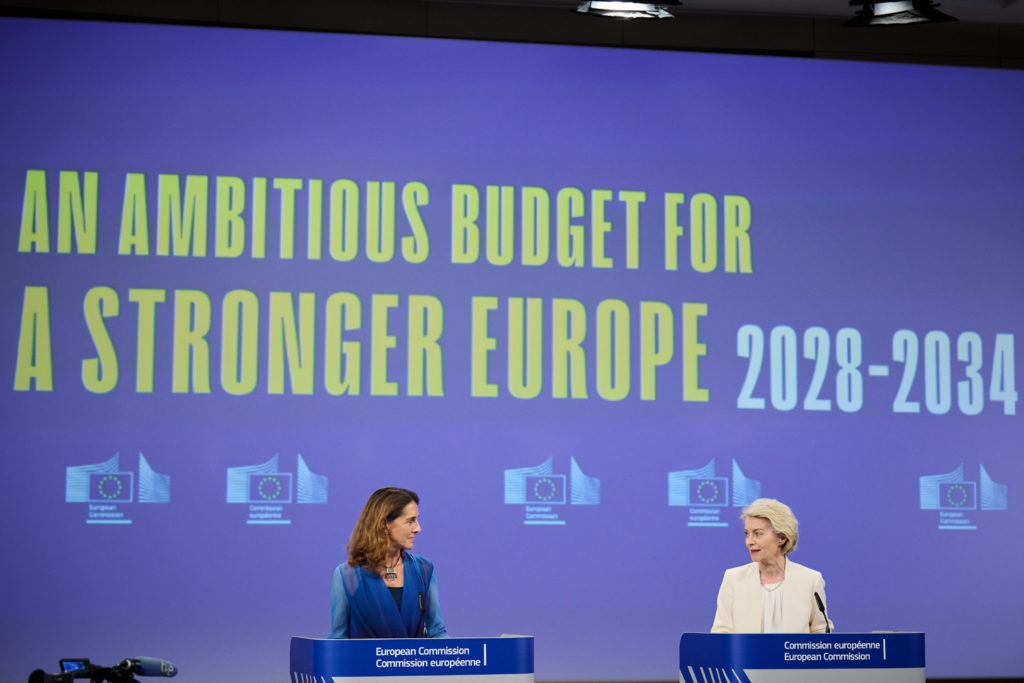EU Shows Faith in Key Rail Fund By Doubling It, Increasing Other Funds in Draft Budget
The European Commission’s Draft EU Budget has delivered a strong result for rail in Europe, by significantly increasing potential investments.
As part of the Draft Multi-Annual Financial Framework 2028 – 2034 released yesterday, the European Commission in its plan outlined a doubling of Horizon Europe funds, retaining and doubling the Connecting Europe Facility, announcing the European Competitiveness Fund and multiplying the existing military mobility envelope by ten.
The significant draft investments come after indications that the Connecting Europe Facility was under consideration to be scrapped, but was instead strengthened.
The survival of CEF, with €50 billion for transport and €17 billion for military mobility, and stand-alone Horizon Europe with substantially reinforced budget of €150 billion is a big success. However, budgets might be subject to reductions in Member States’ negotiations, and the continuation of Europe’s Rail Joint Undertaking is not yet granted. Efforts will continue to focus on this.
UNIFE’s General Director Enno Wiebe reflected on the decision, by saying “Policymakers need to be applauded and celebrated in how they made an emphatic call in keeping, and then strengthening CEF, the most EU-focused rail investment vehicle.”
UNIFE welcomes the proposal with optimism, but is also aware it will need to advocate hard to maintain this level of ambition, and to ensure rail benefits from efficient enabling conditions and sufficient funding across the different programmes.
“The next steps are obvious,” said Mr. Wiebe. “In the upcoming negotiations, together we must ensure that these different investment pillars have maximum impact and get what European citizens, industries and policymakers want the most - a seamless, borderless European railway network delivered by a competitive European Rail Supply Industry.”
Elsewhere in the budget includes the massive €409 billion EU Competitiveness Fund, which includes the share of updated Horizon Europe investments. As it builds on InvestEU and can be considered the blueprint of the Draghi Report, UNIFE will need time to better understand its function. The investment fund may be a place to find funding opportunities funding for rail suppliers in not only for traditional clean and decarbonisation, but also through areas involved the digitalisation, defence and space.
“Horizon Europe’s continued presence and reinforced budget of €175 billion means we can begin the work to ensure that Europe’s Rail Joint Undertaking has a successor,” said Mr. Wiebe on the fund. “For the European Rail Supply Industry to stay ahead, preserve its competitive advantage, and to deliver an EU-wide network which we can be proud of, we must strongly prioritise rail research and development.”
Overall, the EU Commission proposes €2 trillion for the next EU Multi-annual Financial Framework 2028-2034, which also includes that the Commission needs to start repaying NextGeneration EU debt and interest as of 2028, in the amount of €30 billion per year.
“This EU budgetary framework has the right architecture and we are glad to see efforts to simplify and improve access to finance,” said Mr. Wiebe.
“In times of geopolitical stress on Europe through security concerns, climate change and various economic challenges, we need to work together to maximize dual-use benefits in any Military Mobility investments, and stakeholders need to take seriously the role that rail can play in advancing in Europe’s preparedness.”
“Despite these challenges, Europe must not forget to deliver on the promise of completing the Trans-European Transport Network (TEN-T), and ensure funds are available to deploy technologies such as the European Rail Traffic Management System (ERTMS) on our railway network, which will boost interoperability and enhance safety and capacity of the European rail system.”
